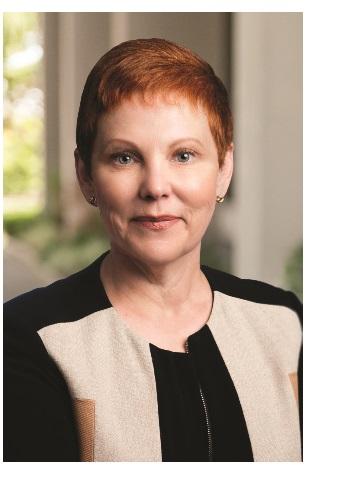CEO Message: Geraldine Vance

It seems that community pharmacists are often focused on finding their way in the ever-changing landscape that is health care. While the change of pharmacy practice may seem too slow for many, in fact, a great deal has changed in less than a decade. In B.C., pharmacists have become the go-to provider for flu shots and other immunizations. Literally hundreds of thousands of British Columbians now rely on their pharmacists for their annual flu shots. The opportunity for B.C.’s pharmacists to deliver immunizations came at a time of crisis in the province. Community pharmacists were asked to answer the call to help respond to the H1N1 crisis. And they did.
Today, we have a different crisis affecting our province and our country – opioids. I think many pharmacists look at this epidemic and wonder how can they help. How do pharmacists add their expertise to help stem the tide of needless overdose deaths in B.C.? This is a question the Association team has been asking for many months and has been the focus of our outreach to experts in the addiction community, our members and regulators. Surely, pharmacists who interact with their patients an average of 35 times a year – almost twice the number of visits a patient makes to their prescriber – can be deployed more effectively to be part of the solution.
We commend the new provincial government for doing so much to focus on this crisis. And B.C.’s community pharmacists are anxious to make a contribution in addressing the problem. None of us can stand by and watch the rising carnage that is killing people each and every day. But finding our way through this crisis, frankly, isn’t easy. There is no one-size-fits-all solution. The issues affecting addiction are complex and go well beyond clinical treatment. Unlike other epidemics that required a straightforward clinical solution, finding meaningful and lasting solutions will take time and innovation. Pharmacists have shown themselves to be very good innovators and that’s why we want to be actively engaged with the provincial government and addiction services organizations.
We have been in discussions about whether pharmacy has a role to play in making clean drugs available to patients battling with addiction. And we are thankful for the ability to explore this potential with BC Centre for Disease Control (BCCDC) and BC Centre on Substance Use (BCCSU). But making this available to patients isn’t something that is easy to do. It merits continued discussions and monitoring.
But one place I know pharmacists can make a difference is in the early identification of patients who are or could be facing addiction problems. We need to use our expertise and relationships with patients to provide counsel and intervention before addiction patterns set in and are hard to address. Our colleagues in Ontario are exploring the potential to get involved in an opioid abuse program where pharmacists would identify and work with patients in the prevention of opioid dependence. This type of program would allow pharmacists to use their medication expertise to work with prescribers and patients in the early stages before those patients are in crisis. We believe this type of program could be very effective in B.C. and we are developing recommendations to make to government.
In order for pharmacists to maximize their effectiveness in dealing with this and other health crises they need to have proper regulatory support to provide the maximum scope of practice. In this issue of The Tablet, others are addressing the framework approved by the College of Pharmacists of BC’s Board regarding pharmacist prescribing. While we support all efforts to advance the practice we believe this framework falls short of what is needed and what B.C.’s community pharmacists are trained to provide.
As we look ahead to 2018 I am hopeful that we can all pull together in the same direction to find the way for pharmacists to provide greater value in dealing with the opioid crisis and the health care of British Columbians in general.
